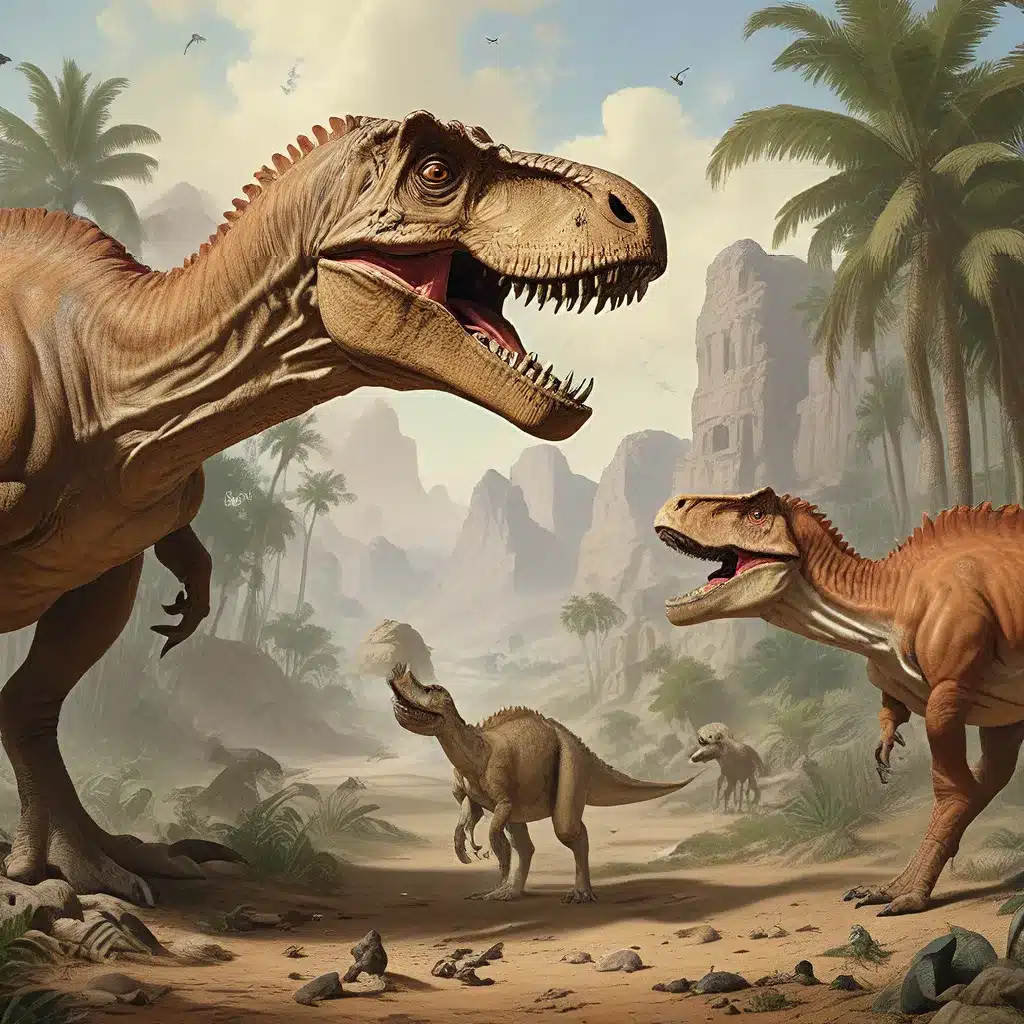
The world of dinosaur discoveries is not just a realm of scientific curiosity; it is also a complex landscape of political negotiations, international collaboration, and cultural ownership. As paleontologists uncover the secrets of the ancient past, they often find themselves navigating a delicate web of diplomatic relationships and competing claims over these remarkable fossils.
The Rise of Dinosaur Diplomacy
The “Bone Wars” of the late 19th century, a fierce rivalry between two pioneering paleontologists, Edward Drinker Cope and Othniel Charles Marsh, set the stage for the modern era of dinosaur diplomacy. This intense competition, fueled by personal animosity and a desire for scientific recognition, led to the hasty and sometimes unethical acquisition of fossils, often with little regard for the local communities where the discoveries were made.
As the field of paleontology grew, so too did the geopolitical implications of these ancient finds. Dinosaur fossils became not just scientific curiosities, but symbols of national identity, cultural heritage, and economic potential. Countries began to assert their claims over the fossils discovered within their borders, leading to a complex web of international negotiations, repatriation efforts, and even legal disputes.
Navigating Cultural Ownership
One of the most contentious issues in dinosaur diplomacy is the question of cultural ownership. Many ancient fossils are found in regions with rich indigenous histories, and the local communities often have a deep connection to these paleontological treasures. However, the global scientific community has not always recognized or respected these cultural claims, leading to bitter conflicts over the rightful ownership and stewardship of these artifacts.
The case of the Tyrannosaurus bataar, a dinosaur fossil discovered in the Gobi Desert of Mongolia, is a prime example of this cultural clash. The fossil was illegally smuggled out of the country and sold at auction in the United States, sparking a diplomatic and legal battle over its repatriation to Mongolia, where it was recognized as a significant part of the nation’s cultural heritage.
Collaborative Efforts and International Partnerships
In recent decades, the field of paleontology has seen a shift towards more collaborative and inclusive approaches to international cooperation. Researchers and institutions from around the world are working together to share knowledge, coordinate excavations, and ensure the responsible stewardship of these ancient remains.
The establishment of the International Council of Museums’ Intergovernmental Committee for Promoting the Return of Cultural Property to its Countries of Origin or its Restitution in case of Illicit Appropriation has been a crucial step in this direction, providing a framework for the negotiation and repatriation of cultural artifacts, including dinosaur fossils.
The Enduring Allure of the Jurassic Period
One of the most intriguing aspects of dinosaur diplomacy is the enduring fascination with the Jurassic Period, a time period that has captured the public’s imagination like no other. While the Jurassic is not the only period of interest to paleontologists, it has become a cultural touchstone, thanks in large part to the success of the Jurassic Park franchise and other media depictions.
This popularity may be rooted in the groundbreaking discoveries made by early paleontologists in Jurassic-era sites, which helped establish the field and shaped the public’s perception of dinosaurs. As a result, the Jurassic Period has become a prism through which many people view the entire scope of dinosaur history, a status that has both advantages and challenges in the realm of paleontological diplomacy.
Emerging Theories and New Discoveries
The world of dinosaur research is constantly evolving, with new theories and discoveries challenging our understanding of these ancient creatures. From the ongoing debates surrounding the extinction of the dinosaurs to the revelations of previously unknown species, the field of paleontology remains a dynamic and ever-changing landscape.
As archaeologists and paleontologists continue to uncover the secrets of the past, they must navigate the complex interplay of science, politics, and cultural heritage. By fostering international collaboration, respecting indigenous claims, and embracing the rich diversity of the ancient world, the field of dinosaur diplomacy can continue to evolve, ensuring that these remarkable fossils are preserved and celebrated for generations to come.


